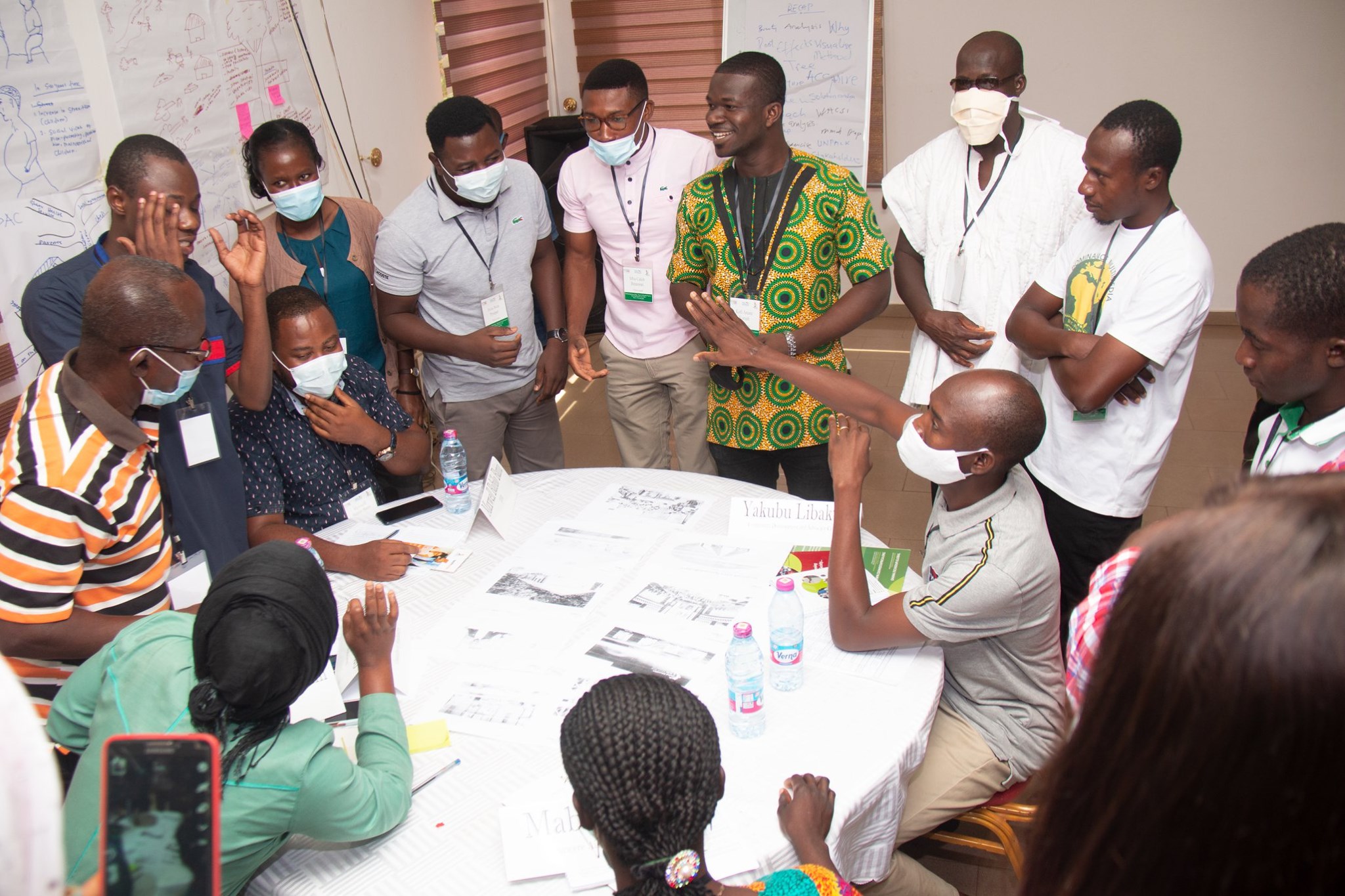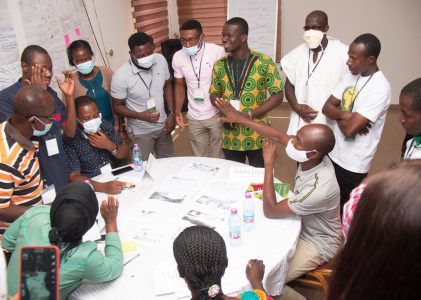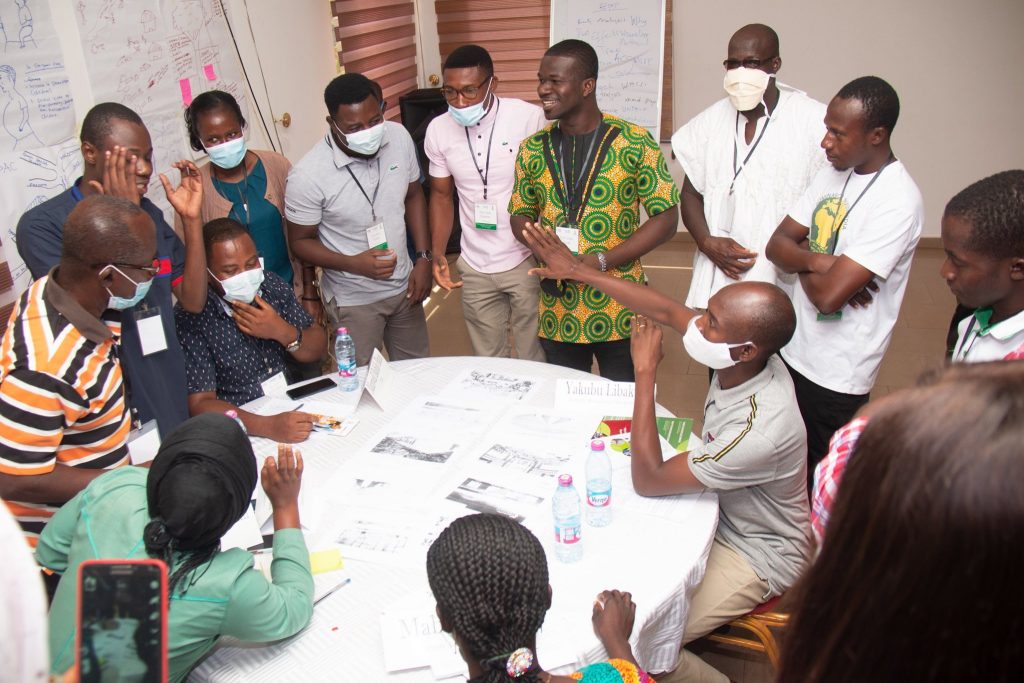
In this series of interviews, we will be introducing you to the lead partners involved in the Giving for Change programme! The five-year, €24 million programme will be implemented in Brazil, Burkina Faso, Ethiopia, Ghana, Kenya, Mozambique, Palestine and Uganda, and is led by a consortium of four organizations: the Africa Philanthropy Network, Kenya Community Development Foundation, GFCF and Wilde Ganzen. The aim of Giving for Change – part of the Dutch government’s ‘Power of Voices’ programme – is to foster local giving as an expression of voice, civic participation, solidarity and dissent. The programme will build evidence around new thinking, approaches and leadership that support community philanthropy development.
In this interview we speak with Charles Kojo Vandyck, Head of the Capacity Development Unit at the West Africa Civil Society Institute (WASCI).
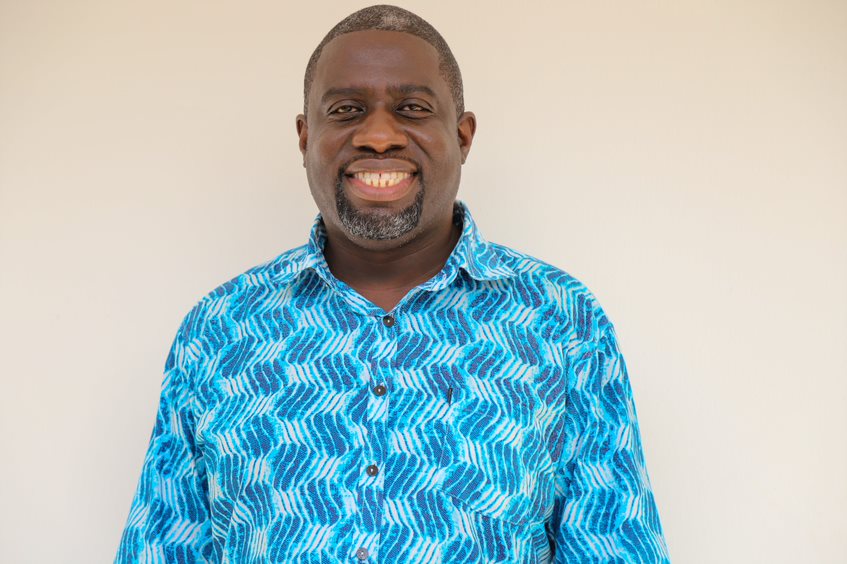
What does community philanthropy currently look like in Ghana?
Charles: In Ghana, giving has been part of our culture though it has been largely informal. We have a situation where families give to support other families and to support disasters in communities. However, we really do not have what I would call a formal kind of philanthropic ecosystem currently. We are working towards that, and there has been a lot of evolution in terms of the civil society space. The evolution has mainly been focused on project or institutional implementers – our typical NGOs and CSOs type of organizations. More recently we have had organizations who are coming on the supply side of things who are providing donor funding for their implementers to do their work. Therefore, we have seen a growth in what I would call indigenous foundations, and most of these foundations are formed by high net worth individuals or – for example – a former statesman or head of state.
We also have foundations that are formed by the multinational companies, more of the private sector kind of foundations. However, we really do not have the typical sense of what we call community-based foundations or what you call community philanthropy. This is something that is still evolving. We are hoping that one of our indigenous foundations, the STAR Ghana Foundation, which transitioned from a multi-donor basket fund into a national foundation, will play that role of creating and also supporting the development of a community-based kind of philanthropy.
What does #ShiftThePower mean to you/your organization?
Charles: It basically calls for a mind-set shift when you look at the way development has always been done. A shift from perceptions that place Global South organizations as passive recipients of aid towards a more engaging and active mind-set, where we are seen as more active participants in our own development process. It also means us taking responsibility in terms of leadership, being in charge of our own change processes, making sure our voices are heard in terms of how programmes are developed and measured. Thirdly, we can also look at how we can really diversify resources as this enables us to be more independent. We should mobilize our own resources: not just financial but non-financial resources too.
How will the Giving for Change programme help to advance the community philanthropy field or #ShiftThePower in Ghana?
Charles: The Giving for Change programme is very progressive as it fits within our broader vision. Basically, we are focusing on how development can be done differently and this includes tapping into our own resources and building local ownership and agency. In Ghana, the project will be implemented in three domains. Domain one aims to support local communities and civic groups to promote inclusive and community-owned development through local philanthropy. The strategy involves forming local Communities of Practice (CoPs) to bring together a diverse range of civil society actors. Two CoPs have already been formed and clustered in the Northern and Southern Zones.
The COPs will mostly be a physical, but also online space. The CoPs are places for mutual learning and sharing, testing new approaches and ways of working. This learning and sharing are centred around domestic resource mobilization, building local constituencies for social change, strengthening community voices and questions around power dynamics. The CoPs will be places to build social capital and a network amongst the different members. The focus on domestic resource mobilization, constituency building and mind-set shift as cross-cutting issues can be the glue to bring different types of actors together that normally don’t connect with each other.
Another key objective is to pilot philanthropy or giving models that work within our context and to amplify community philanthropy not just as a response strategy for emergency or humanitarian purposes but for social justice and sustainable development. We are also trying to find different ways of influencing legislation to ensure that we have a more enabling philanthropic ecosystem that enables us to get resourcing for social justice issues. We will be doing some research on legal frameworks and looking at how to influence specific laws that can support the philanthropic ecosystem. These include: the Ghana’s Companies Act; the new Trustee Bill; and, there is a Social Enterprise Policy that has been put together but is still yet to be implemented. There is an upcoming NGO bill and another one on Corporate Social Responsibility that certain parliamentarians are pushing – all of these are opportunities for us to engage and to ensure that these regulations enable us to build a much more conducive ecosystem for giving.
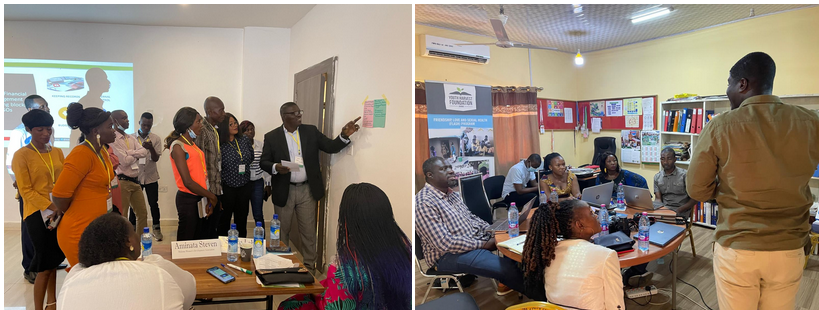
How can the Giving for Change programme help encourage donors / INGOs to really shift power and resources closer to the ground?
Charles: Donors should support organizations that are experimenting, and exploring with various philanthropy models. Many times, if you look at such organizations, they need sustainability support, they need technology support, they need programmes that enable them to strengthen their own operations. I think these are the kinds of support that donors can provide. Donors should move beyond activity-based support, or the kind of ad hoc support that they are currently giving, and look more broadly at the ecosystem and identify the kinds of support that civil society needs to become more financially resilient. For example, donors can offer support in building evidence around community-led development and philanthropy. This support will help organizations like WACSI to conduct research and produce indigenous knowledge in these areas, and also to experiment or pilot community philanthropy models. These are initiatives that are worth supporting, to facilitate a power shift to communities.
How has aid undermined local giving practices in Ghana and what can the Giving for Change programme do about that?
Charles: I think aid was constructed based on what I believe to be a good intent but the problem has always been how aid has been structured and delivered. What has happened over the years is that there is a certain realization that aid can be structured and delivered a bit more differently and effectively. Aid created a dependency culture and perpetuated the white saviour mentality. There are certain perceptions from both the Global North and Global South about functions that have been carried out over the years, and I believe that is what needs to change. We need to get to a position where those of us who are here and working in this space are at the forefront of the change and we actually lead our own development agenda.
If you look at the way aid is structured now, we are actually not leading our own development agenda, our development agenda is being led by countries and organizations in the Global North. Some of these organizations have decided to localize, to register in our space and work out of here. As a result, with the Giving for Change programme, we are making sure that we are able to negotiate our way to ensure that communities’ priorities are actually represented in these programmes.
Then, of course, resourcing is a power issue and this kind of initiative is important because here we are trying our best to look at how we can expand the frontiers of resourcing so that we do not have a certain perception that resourcing can only come from outside. We also recognize that we do have the assets and resources here, and we should position ourselves to tap into those resources. For example, remittances can support change at the community level, and also social justice causes. I believe this is why Giving for Change is important in terms of that shift, that mind-set shift and that shift in terms of resourcing which will help really strengthen our communities and their resilience.
Interview conducted by: Tarisai Jangara, GFCF Communications Specialist
